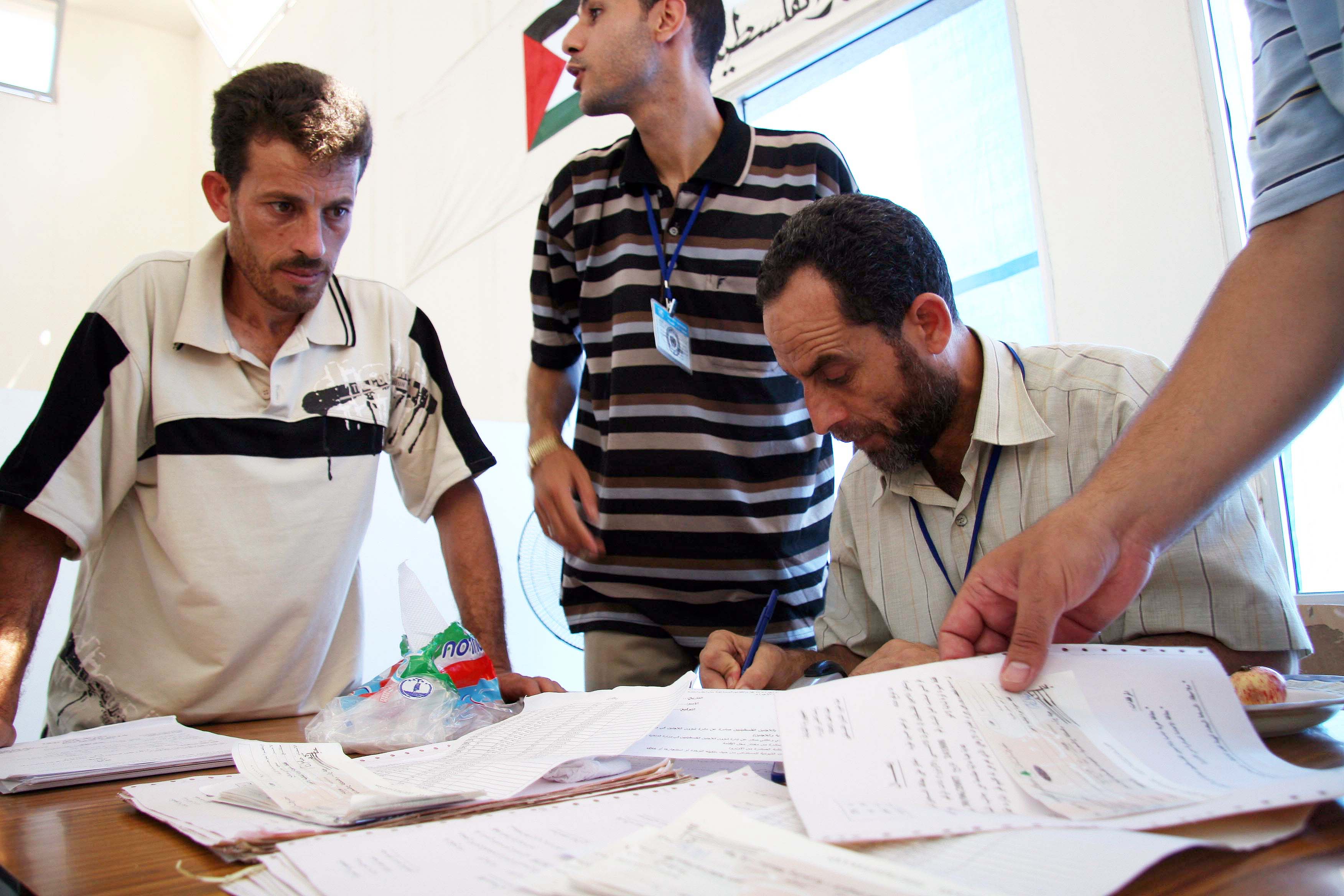Saudi Arabia has donated $12m to the UN Palestinian relief organisation, UNRWA, which has been distributing the cheques at Beddawi state school, just outside Beddawi refugee camp, in cooperation with the Lebanese government and the Palestine Liberation Organisation (PLO).
Over 30,000 Palestinians displaced since the 20 May outbreak of fighting between the Lebanese army and Fatah al-Islam militants in Nahr al-Bared camp, 10km further north, have sought shelter in Beddawi, putting a massive burden on the already cramped and under-resourced camp.
Bahjat Taweeye, who fled Nahr al-Bared after four days of bombardment and who said he saw his uncle and nephew killed by artillery fire as they attempted to get food and water for their family, said he was grateful for the financial assistance.
Asked if he would wait until unexploded ordnance had been cleared from Nahr al-Bared and UNRWA had given the green light for families to return, he said: “I will be in my house. As soon as I can, I will return. I know how to defuse these bombs.”
Four hundred remain
Sultan Abu al-Aynan, the head in Lebanon of the secular Palestinian faction Fatah, told Beirut’s The Daily Star that about 400 Palestinian civilians remain in Nahr al-Bared. “The civilians are living on old stocks, and lack water and food,” he said.
The International Committee of the Red Cross (ICRC) has been unable to deliver any food, water or medicine into Nahr al-Bared since 22 June because the army is refusing to grant safe passage.
Abu Wissam Gharib, spokesman for the Palestinian Popular Committees of Nahr al-Bared, who stayed 25 days in the camp, said there were still children living in shelters under heavy bombardment.
Call for more shelters
Gharib urged UNRWA and the international community to provide good shelters for displaced Palestinians next to Nahr al-Bared, rather than in Beddawi, as had previously been planned by UNRWA.
“This is the only solution for when there is a ceasefire. People have to be able to get home when they can, but until Nahr al-Bared is made safe we want them to live beside the camp, not in it.”
Hope for more donations
 Photo: Hugh Macleod/IRIN  |
| A government poster makes promises to Palestinians displaced from Nahr al-Bared refugee camp, northern Lebanon |
“The money can help pay the rent on cheap apartments, which are around $200 a month,” she said. “We are hoping for more donations.” The government - still recovering from last summer’s war [between Israel and Hezbollah militants] - said it was encouraging other countries to donate money.
The United Arab Emirates donated their seventh aid convoy of food, water, baby food and blankets to help the displaced in Beddawi camp and surrounding areas.
Background
Over 200 people have been killed, hundreds wounded and around 35,000 displaced in a seven-week battle that has seen much of Nahr al-Bared destroyed as the Lebanese army bombards positions held by the Al-Qaeda-inspired Fatah al-Islam militants. The latter are a mix of Arab extremists, some of whom are believed to have fought in Iraq.
The violence has been Lebanon's worst internal conflict since the end of the civil war in 1990.
hm/ar/cb
This article was produced by IRIN News while it was part of the United Nations Office for the Coordination of Humanitarian Affairs. Please send queries on copyright or liability to the UN. For more information: https://shop.un.org/rights-permissions





